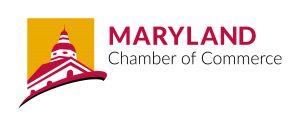| A Global Economic Crisis is Not the Time for Taxes
As you are aware, Maryland is being significantly impacted by COVID-19. Our state is operating under a state of emergency and the Maryland Emergency Management Agency has elevated its state response activation level. The situation continues to evolve and escalate rapidly.
COVID-19 has already had a tremendous impact on our economy—an impact which stands to intensify in the coming days and weeks. In the last two weeks alone, we have seen historic plunges in the stock market and an emergency rate cut by the Federal Reserve. Maryland’s own fiscal leaders have described the situation as “highly volatile,” and expressed their concern that we are headed for a full-blown recession.
Supply-chain disruptions due to the pandemic are expected to increase the cost of business, especially for manufacturers and construction companies. The food, hospitality and service industries are expecting sharp declines in revenue. Although the resulting blow to the economy is not yet certain, to compare, in 2005, when the avian-flu pandemic occurred, the Congressional Budget Office estimated that spending on food services, arts and accommodations would temporarily decline by approximately 80%.
Clearly, there is plenty of reason to be concerned about the lasting economic impact of COVID-19.
We are mindful that the General Assembly is presently considering several business tax measures aimed at raising revenue to fund its priorities. However, tax policy is complex and results in many unintended consequences. The imposition of new taxes will only worsen this crisis for Maryland businesses and the citizens they employ.
A period of major economic downturn and future uncertainty is not the time to implement complicated tax measures that stand to negatively impact businesses already struggling to plan for and overcome the impact of COVID-19. |

